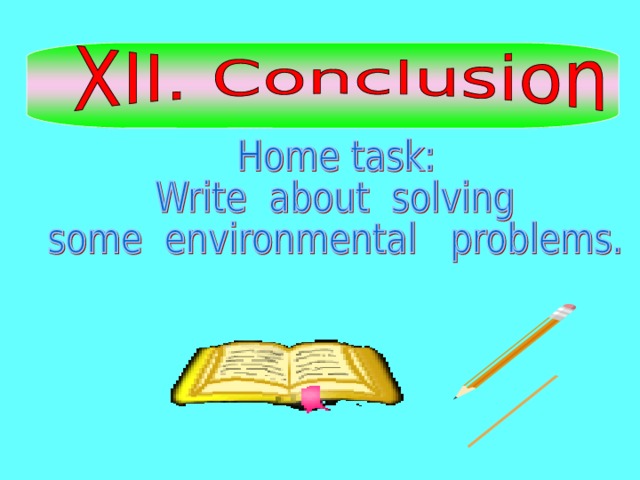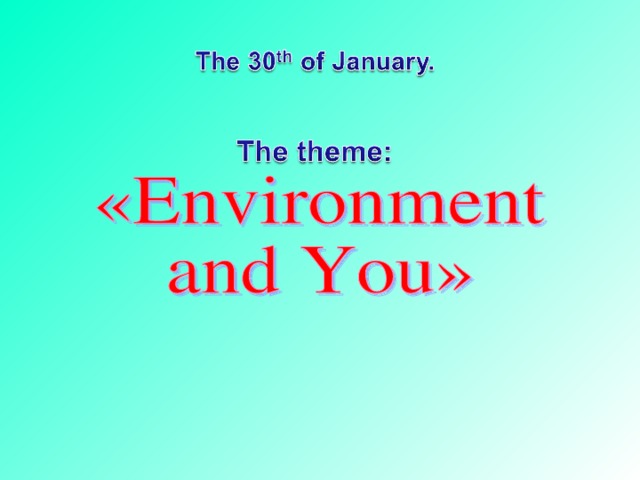
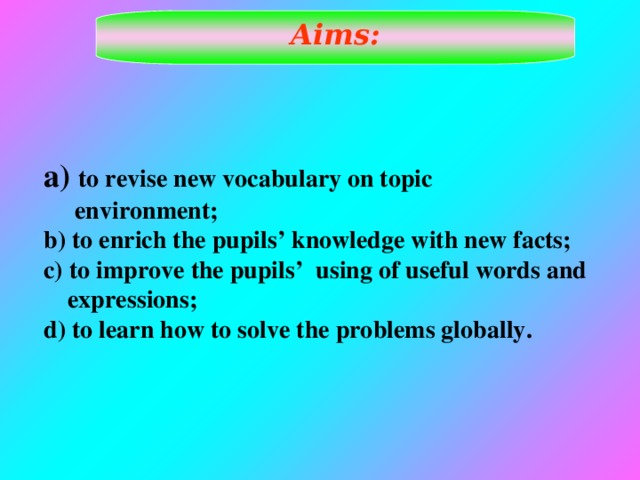
Aims:
- to revise new vocabulary on topic
environment;
b) to enrich the pupils’ knowledge with new facts;
c) to improve the pupils’ using of useful words and expressions;
d) to learn how to solve the problems globally.
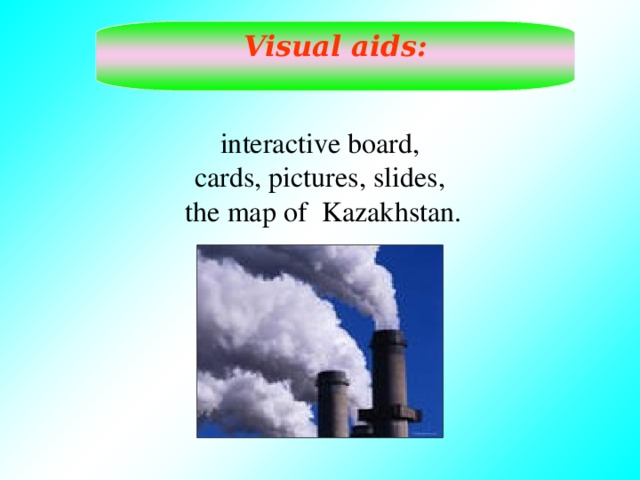
Visual aids:
interactive board,
cards, pictures, slides,
the map of Kazakhstan.
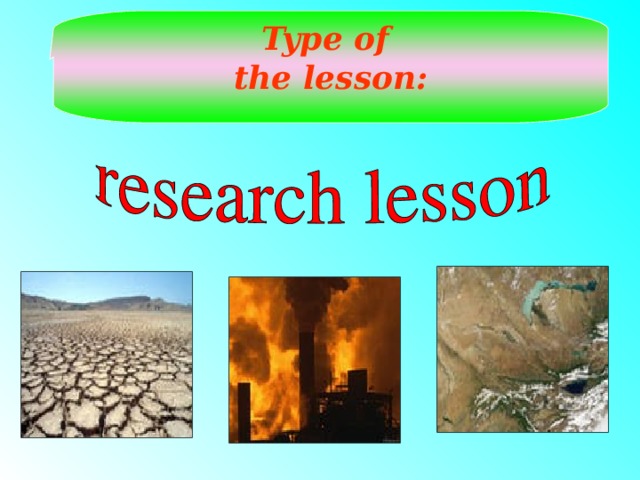
Type of
the lesson:
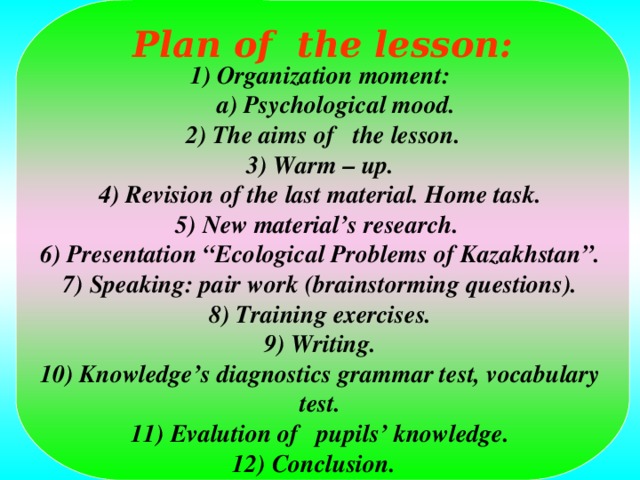
Plan of the lesson:
1) Organization moment:
a) Psychological mood.
2) The aims of the lesson.
3) Warm – up.
4) Revision of the last material. Home task.
5) New material’s research.
6) Presentation “Ecological Problems of Kazakhstan”.
7) Speaking: pair work (brainstorming questions).
8) Training exercises.
9) Writing.
10) Knowledge’s diagnostics grammar test, vocabulary test.
11) Evalution of pupils’ knowledge.
12) Conclusion.
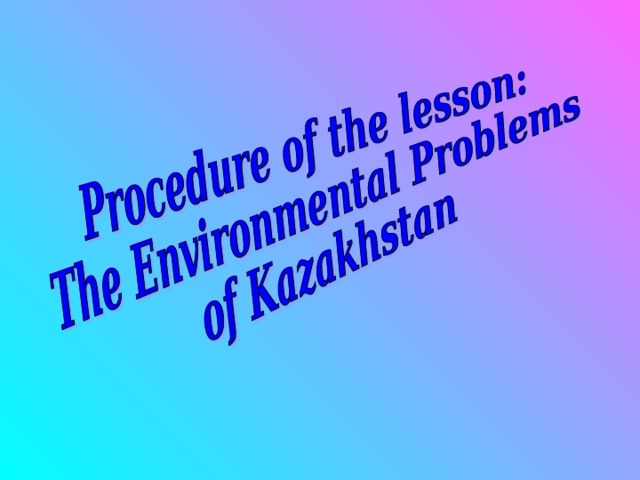
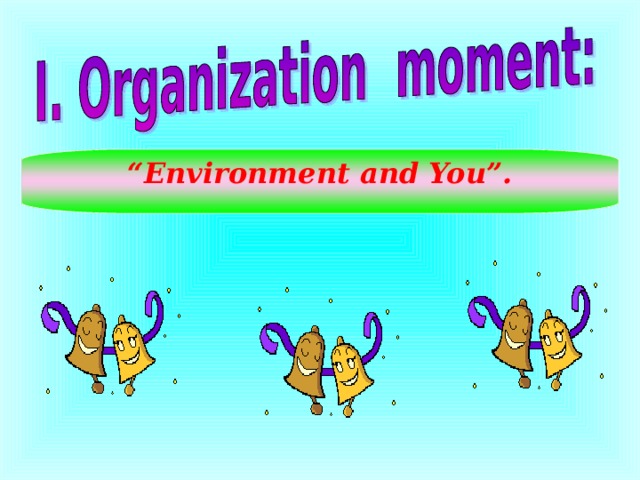
“ Environment and You”.
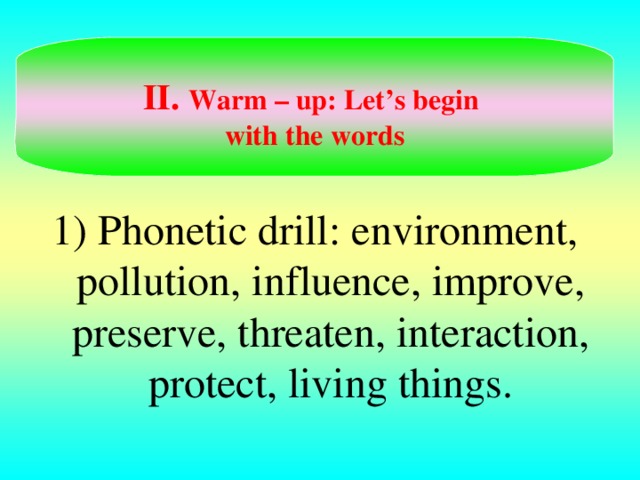
II. Warm – up: Let’s begin
with the words
1) Phonetic drill : environment, pollution, influence, improve, preserve, threaten, interaction, protect, living things.
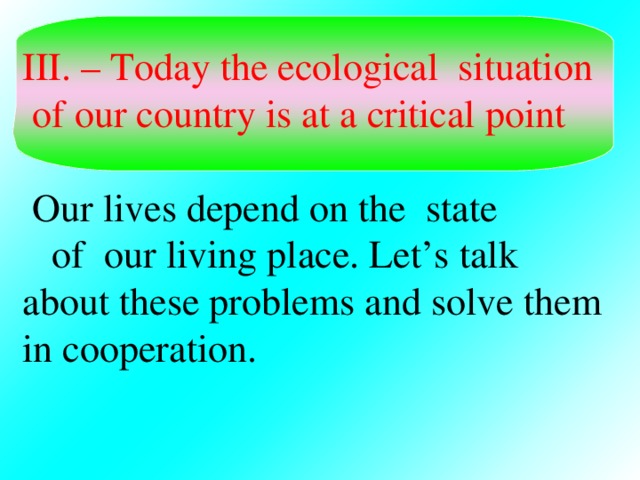
III. – Today the ecological situation
of our country is at a critical point
Our lives depend on the state
of our living place. Let’s talk about these problems and solve them in cooperation.

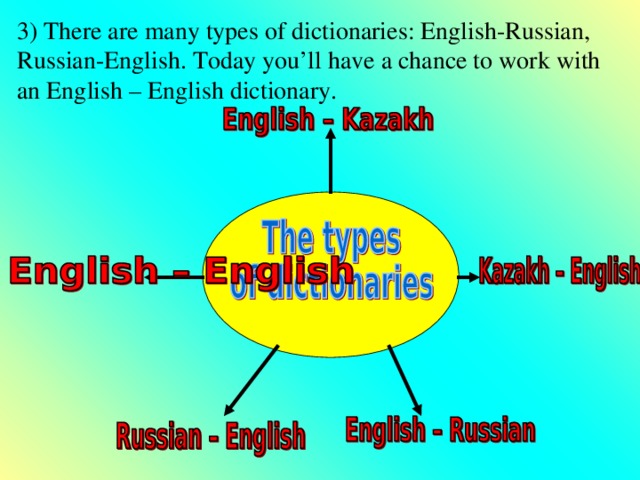
3) There are many types of dictionaries: English-Russian, Russian-English. Today you’ll have a chance to work with
an English – English dictionary.
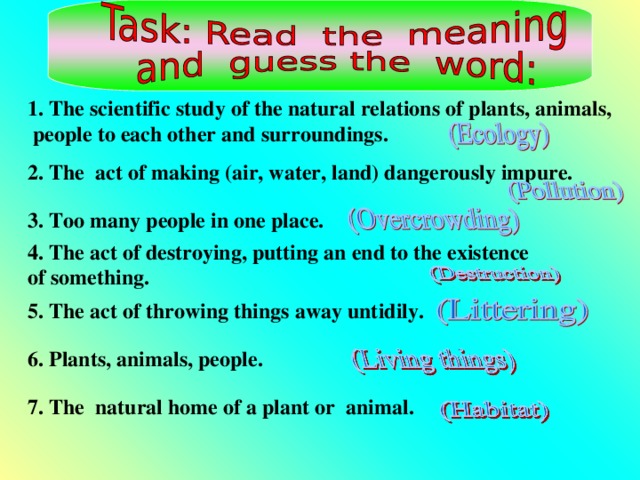
1. The scientific study of the natural relations of plants, animals,
people to each other and surroundings.
2. The act of making (air, water, land) dangerously impure.
3. Too many people in one place.
4. The act of destroying, putting an end to the existence
of something.
5. The act of throwing things away untidily.
6. Plants, animals, people.
7. The natural home of a plant or animal.
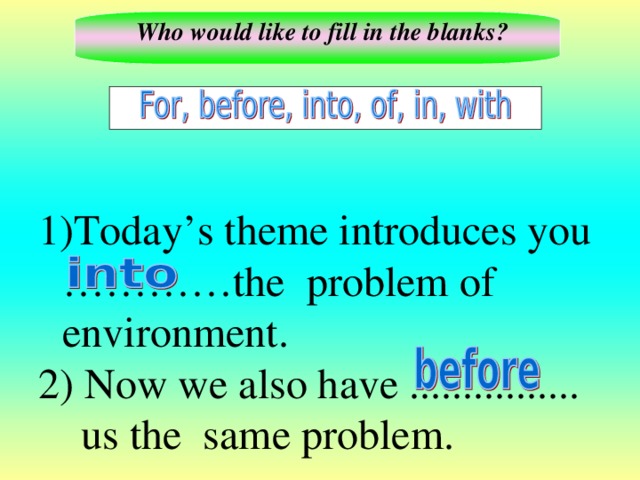
Who would like to fill in the blanks?
- Today’s theme introduces you …………the problem of environment.
2) Now we also have ................
us the same problem.
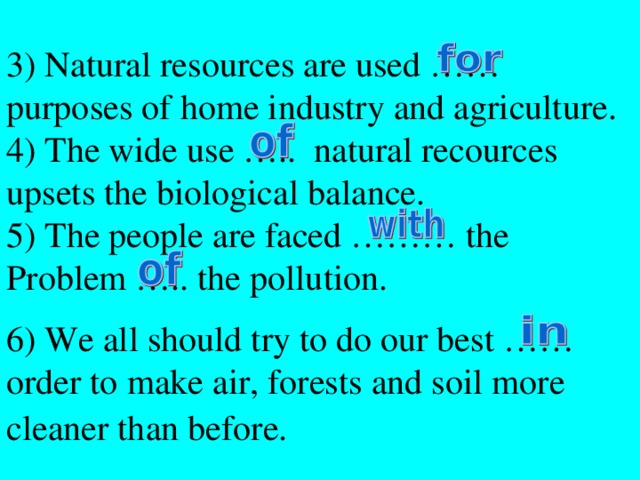
3) Natural resources are used …… purposes of home industry and agriculture.
4) The wide use ….. natural recources
upsets the biological balance.
5) The people are faced ……… the
Problem ….. the pollution.
6) We all should try to do our best …… order to make air, forests and soil more cleaner than before.
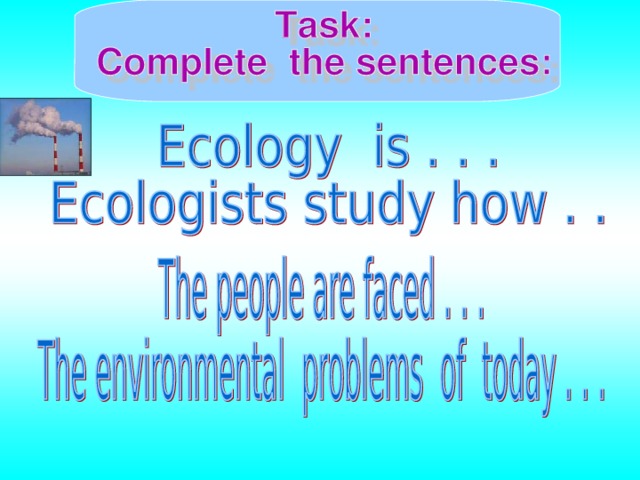
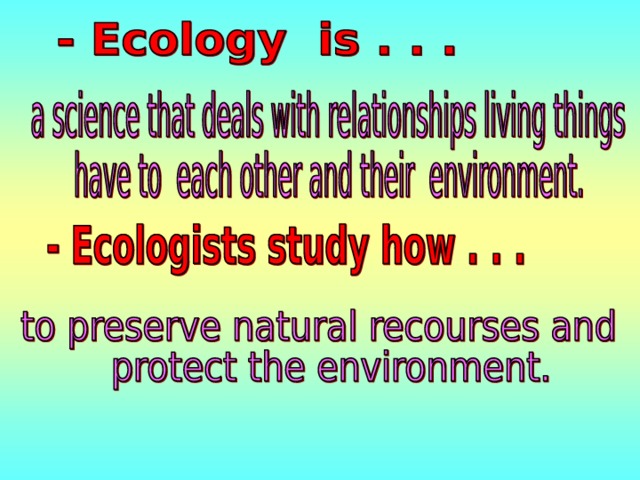
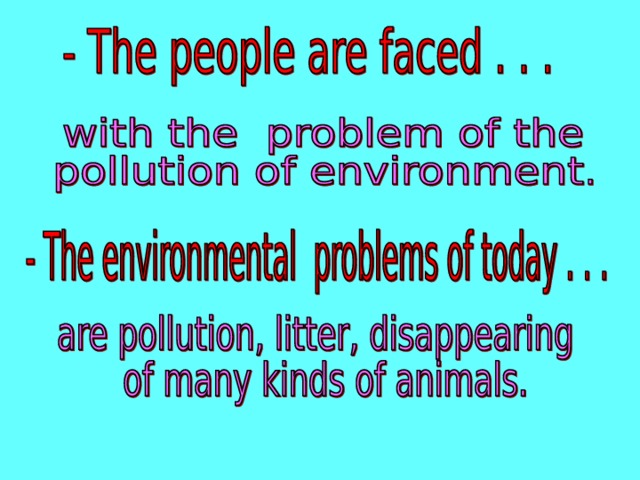
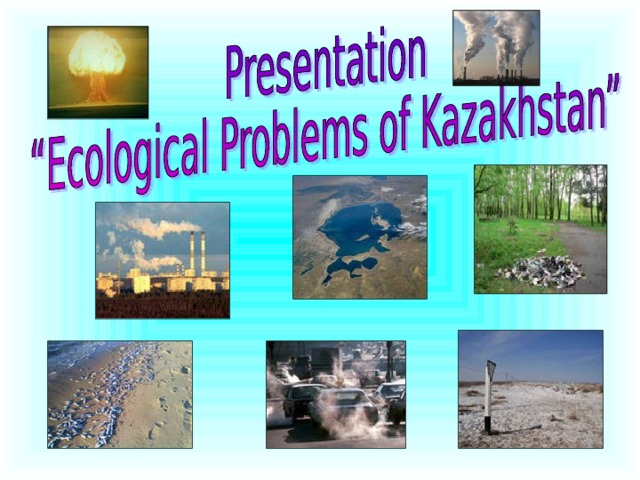
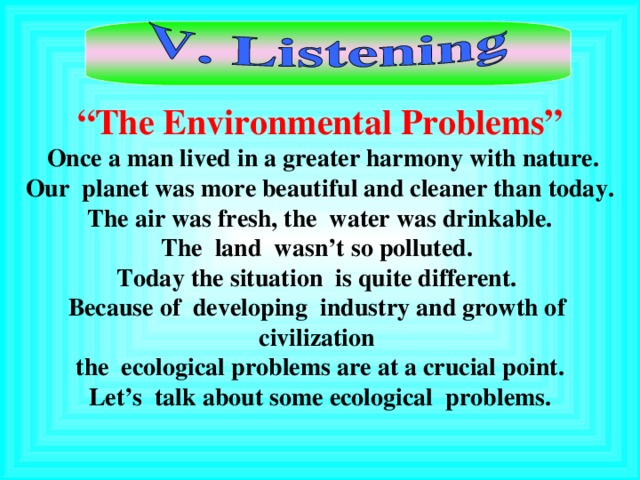
“ The Environmental Problems”
Once a man lived in a greater harmony with nature.
Our planet was more beautiful and cleaner than today.
The air was fresh, the water was drinkable.
The land wasn’t so polluted.
Today the situation is quite different.
Because of developing industry and growth of civilization
the ecological problem s are at a crucial point.
Let’s talk about some ecological problems.
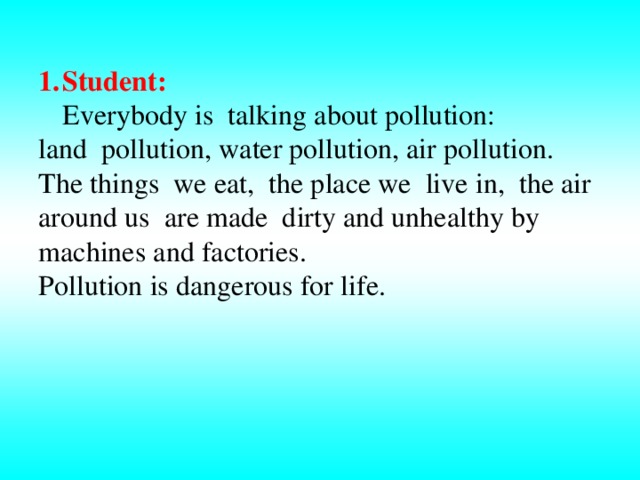
Everybody is talking about pollution:
land pollution, water pollution, air pollution.
The things we eat, the place we live in, the air
around us are made dirty and unhealthy by
machines and factories.
Pollution is dangerous for life.
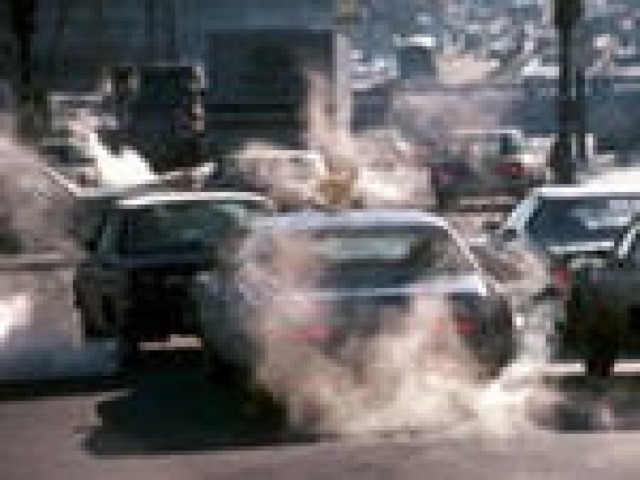
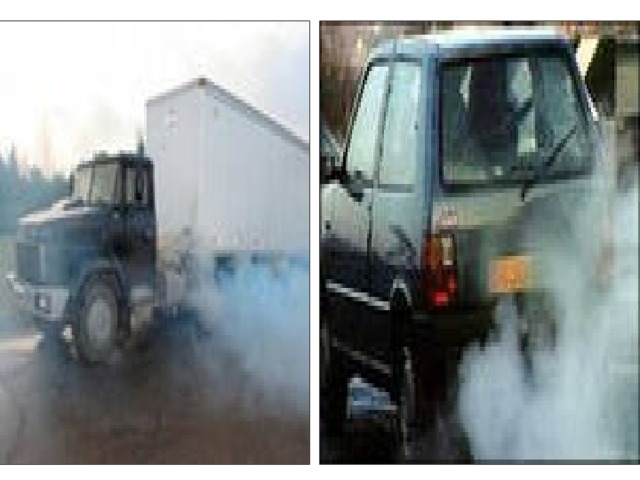

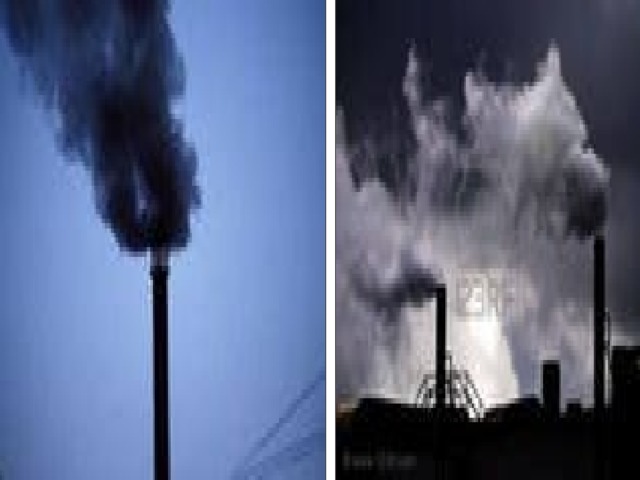
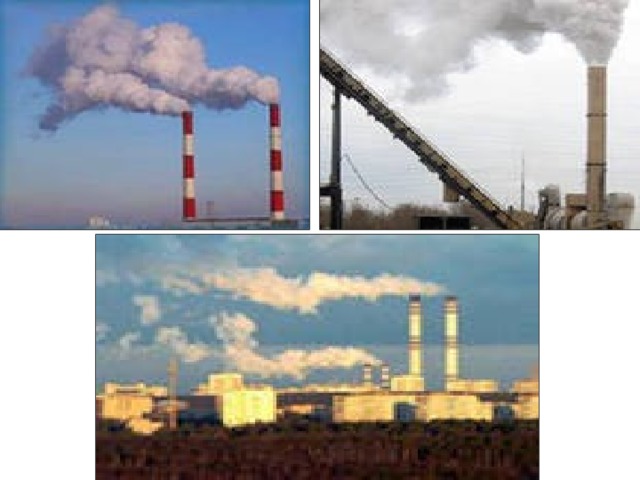
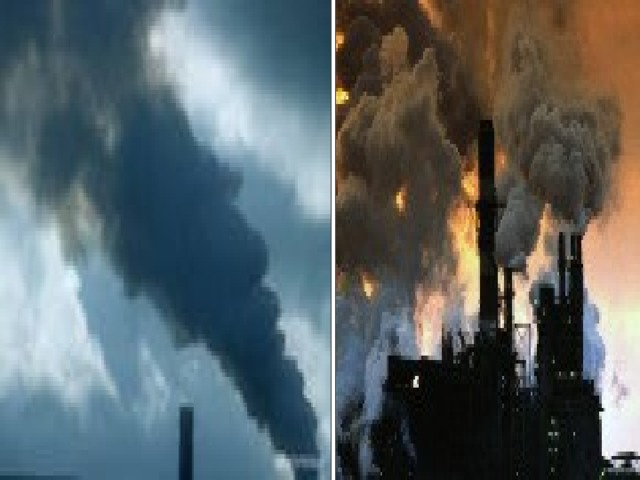
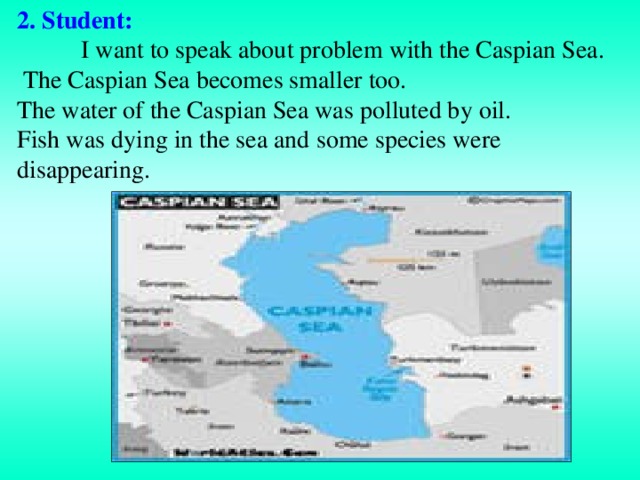
2 . Student:
I want to speak about problem with the Caspian Sea.
The Caspian Sea becomes smaller too.
The water of the Caspian Sea was polluted by oil.
Fish was dying in the sea and some species were
disappearing.
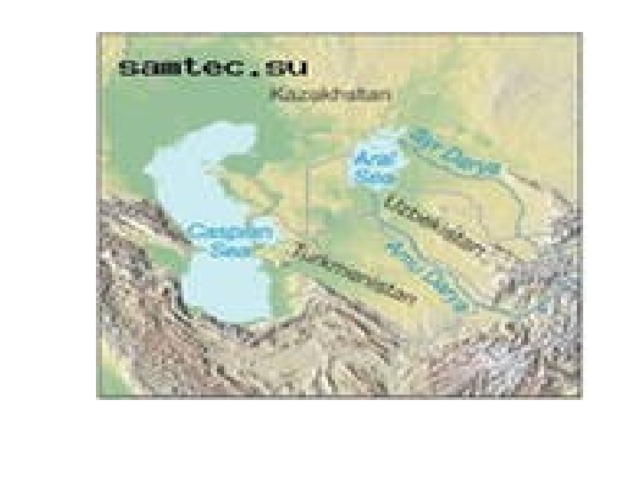
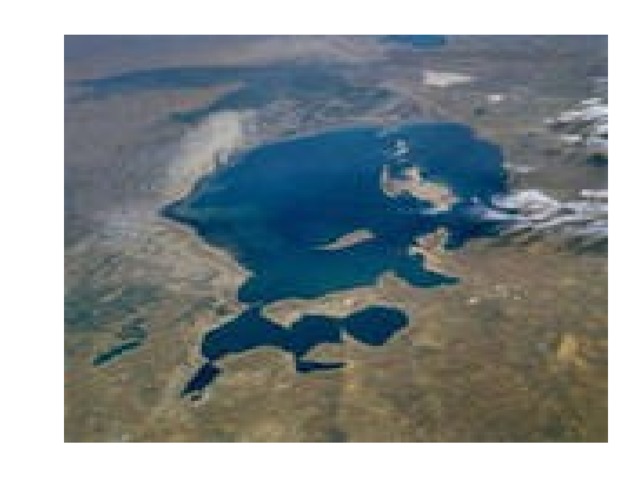
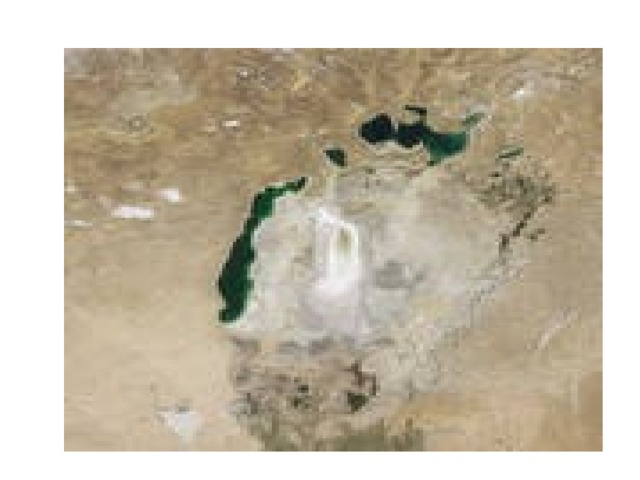
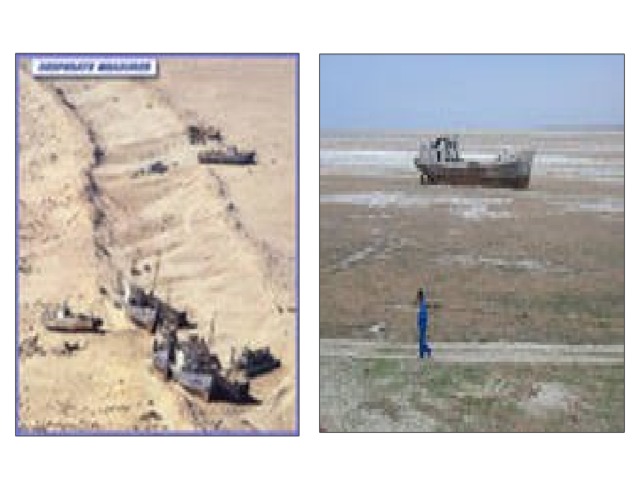
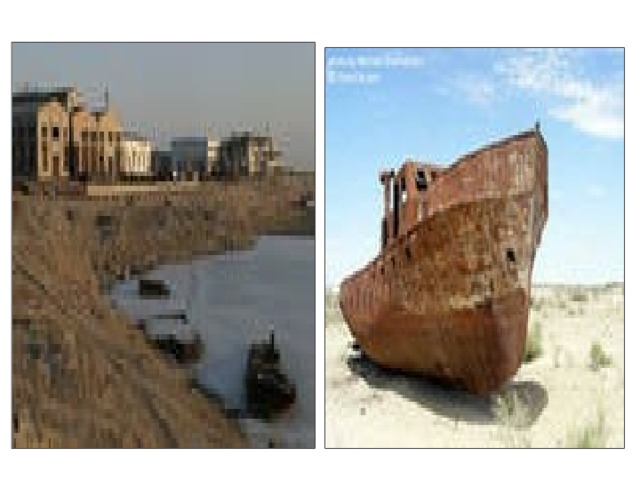
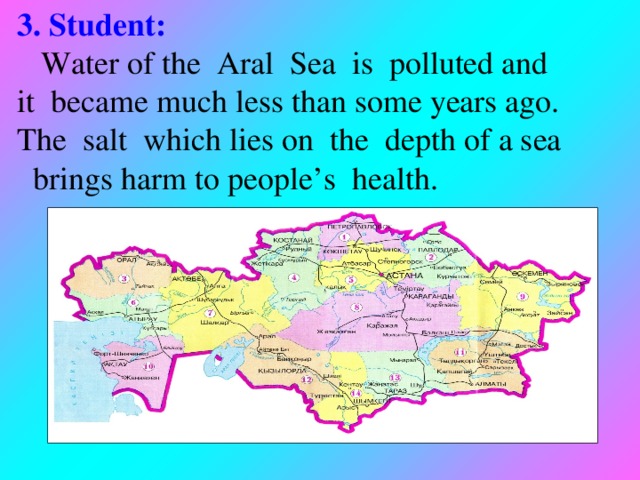
3 . Student:
Water of the Aral Sea is polluted and
it became much less than some years ago.
The salt which lies on the depth of a sea
brings harm to people’s health.
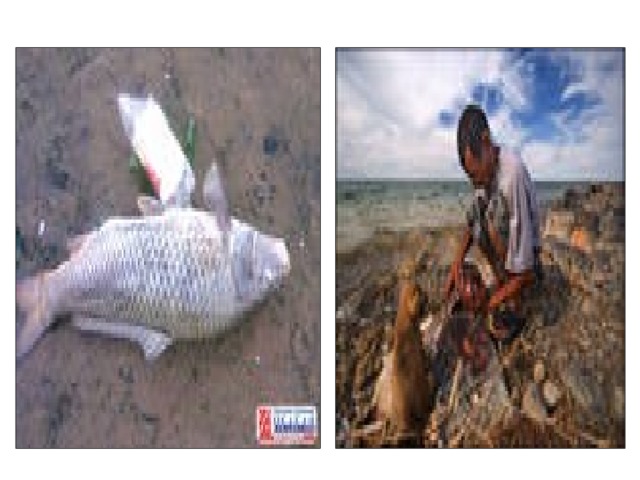
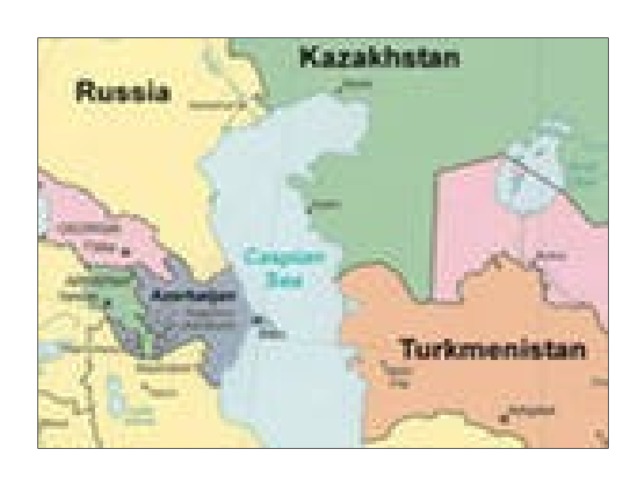
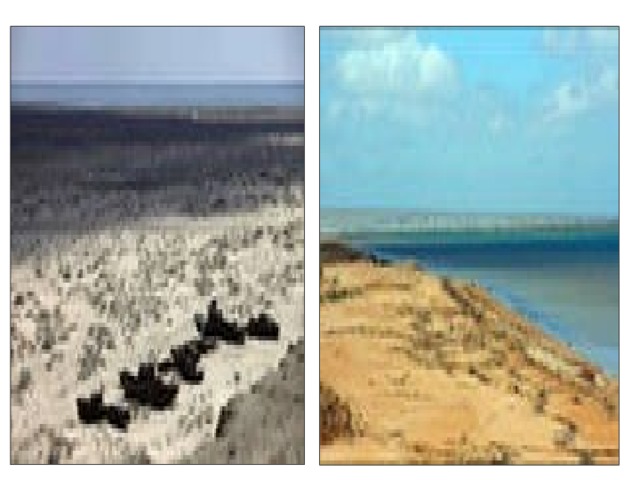
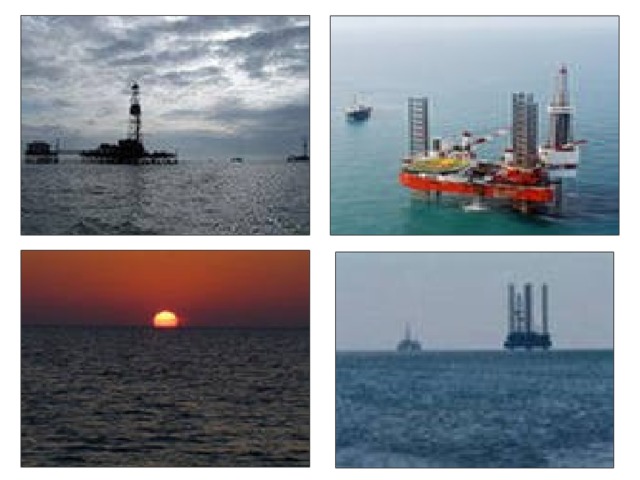
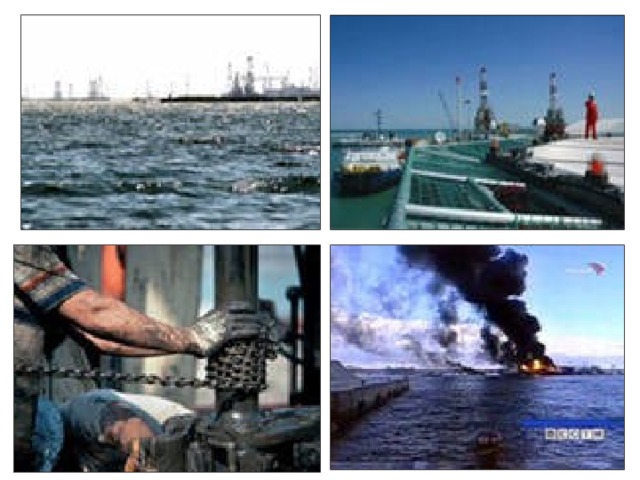
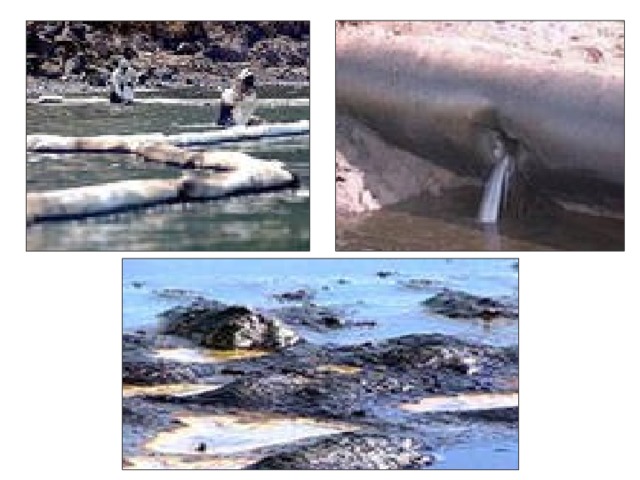
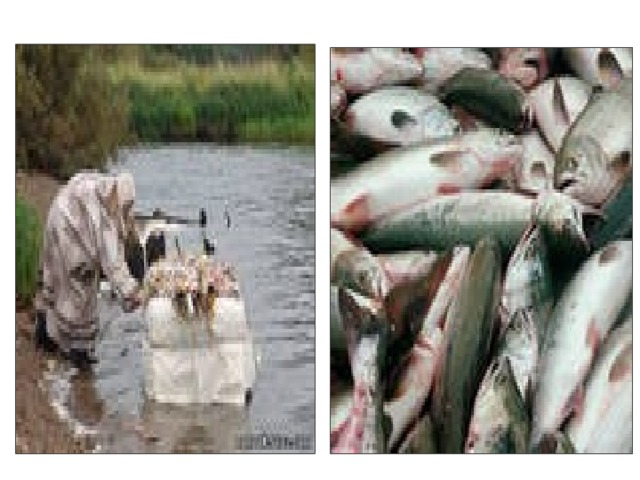
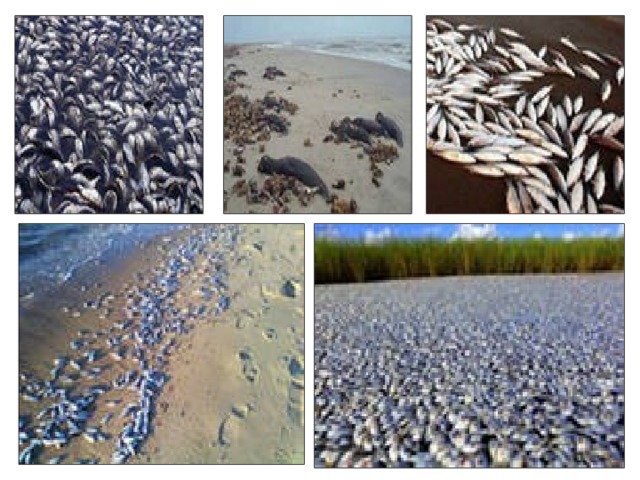
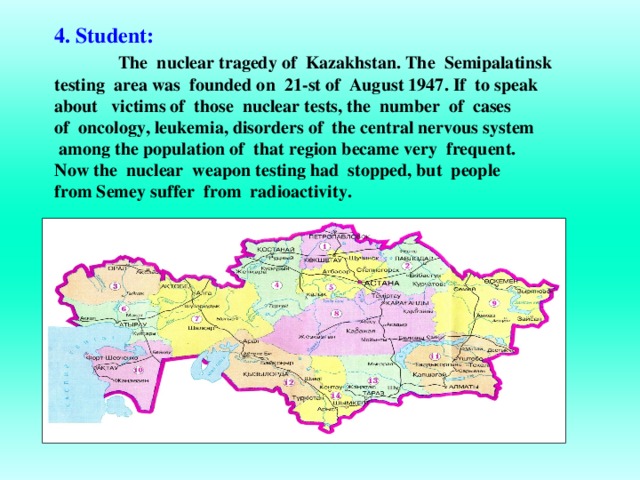
4. Student:
The nuclear tragedy of Kazakhstan. The Semipalatinsk
testing area was founded on 21-st of August 1947. If to speak
about victims of those nuclear tests, the number of cases
of oncology, leukemia, disorders of the central nervous system
among the population of that region became very frequent.
Now the nuclear weapon testing had stopped, but people
from Semey suffer from radioactivity.
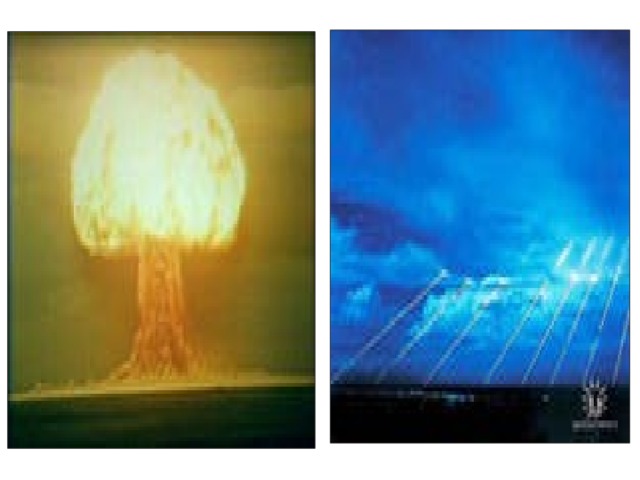
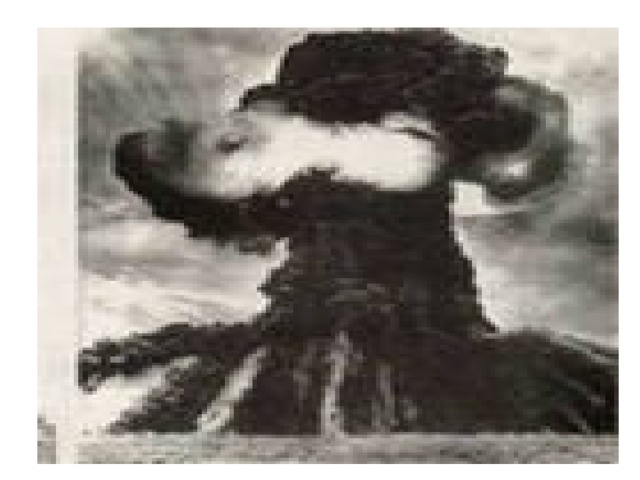
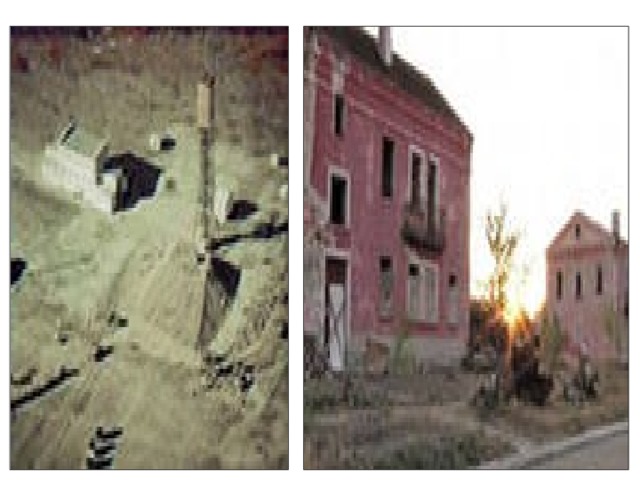
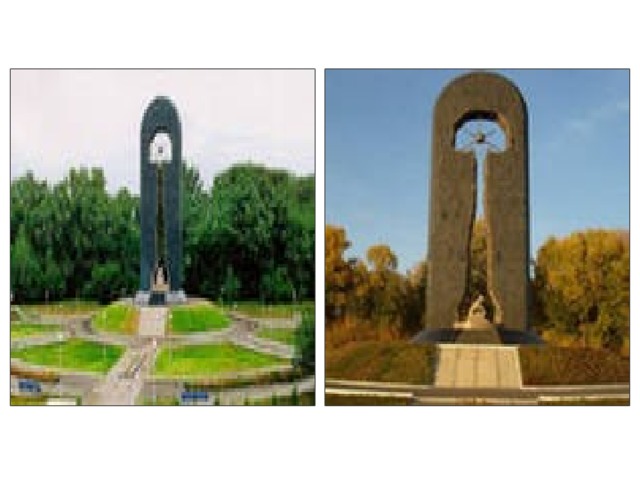

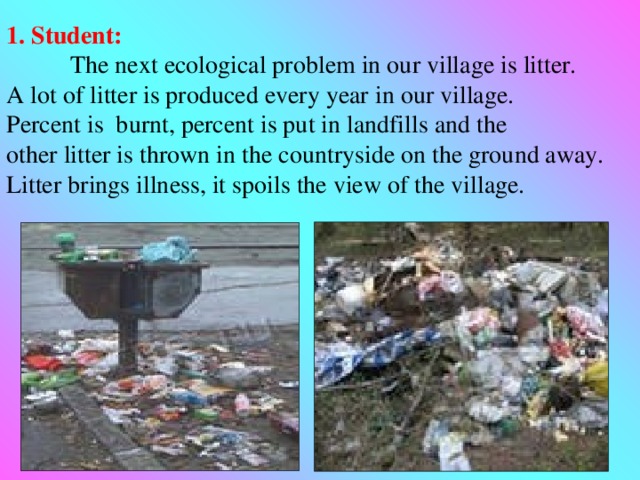
1 . Student:
The next ecological problem in our village is litter.
A lot of litter is produced every year in our village.
Percent is burnt, percent is put in landfills and the
other litter is thrown in the countryside on the ground away.
Litter brings illness, it spoils the view of the village.
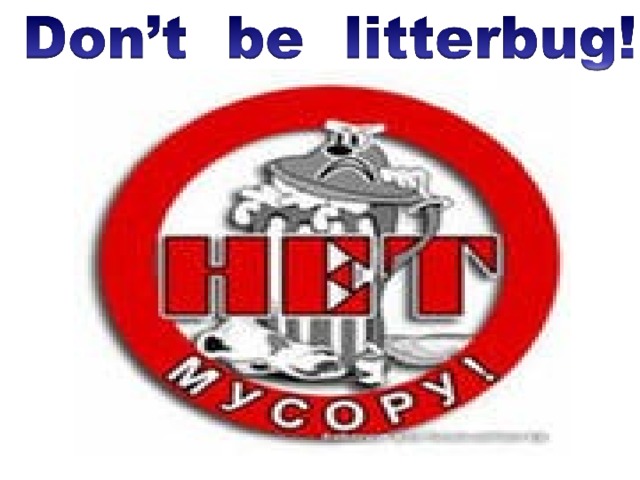

2. Student:
There are a lot of petrol stations in our region.
We know that petrol will bring much profit to the
owners, but it fumes and pollutes air.
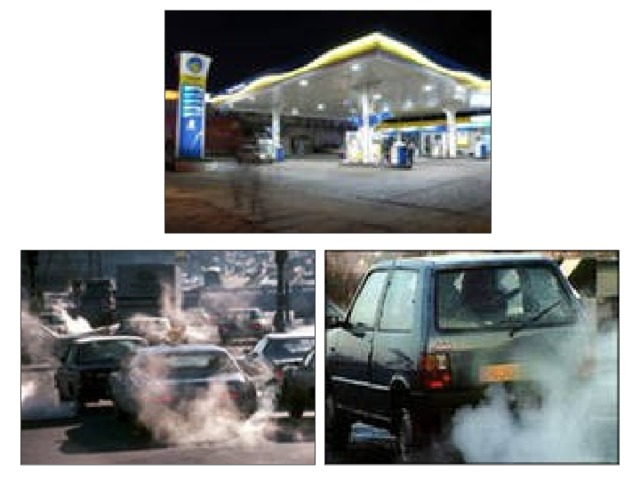
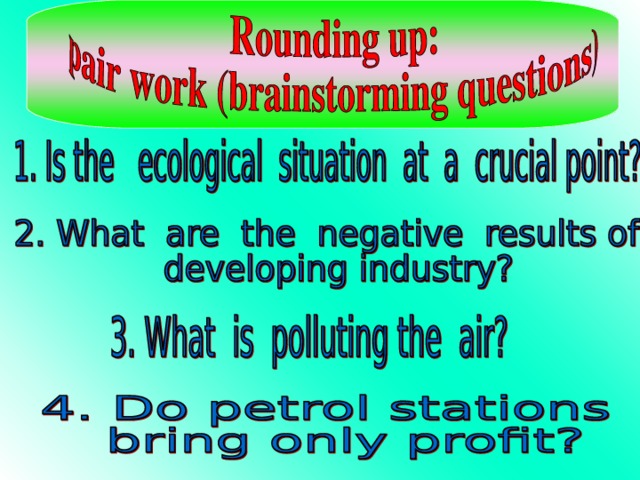
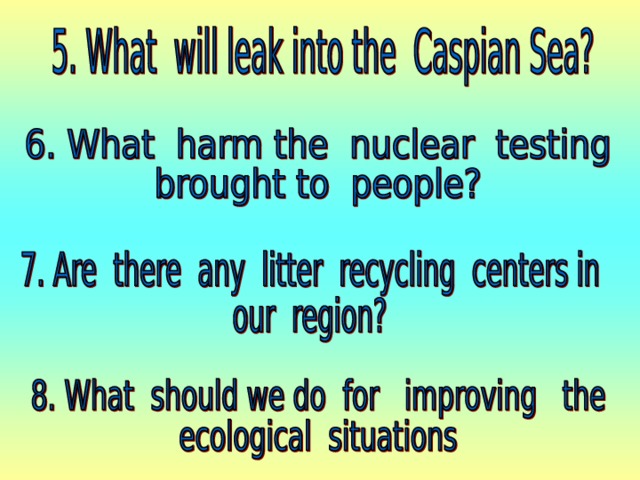
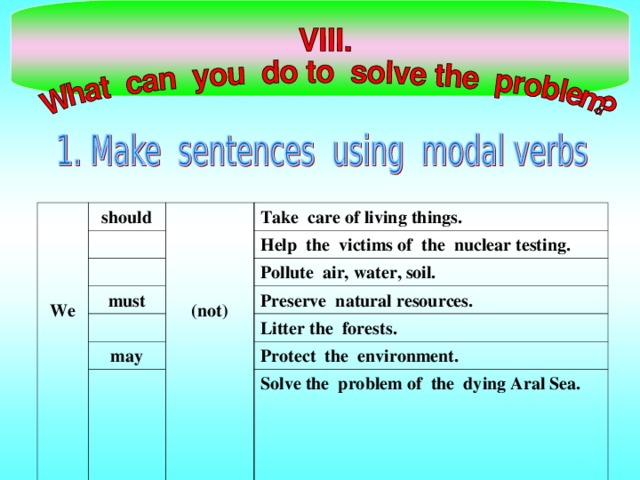
We
should
(not)
Take care of living things.
Help the victims of the nuclear testing.
must
Pollute air, water, soil.
Preserve natural resources.
may
Litter the forests.
Protect the environment.
Solve the problem of the dying Aral Sea.
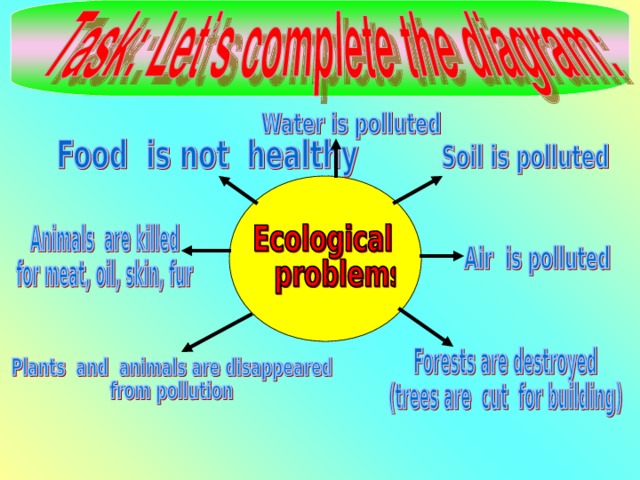
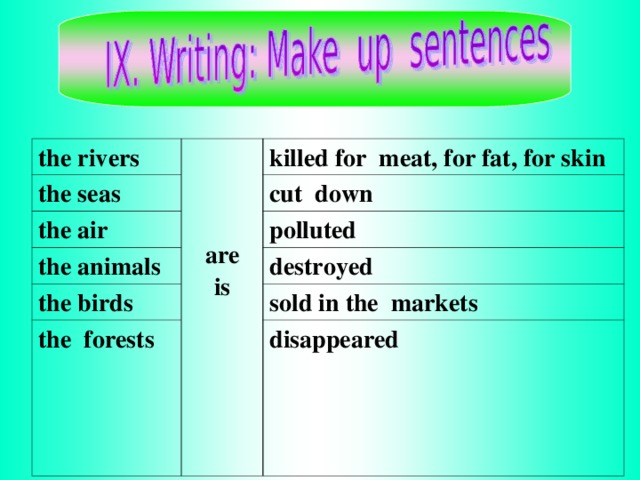
the rivers
are
is
the seas
killed for meat, for fat, for skin
the air
cut down
the animals
polluted
the birds
destroyed
the forests
sold in the markets
disappeared
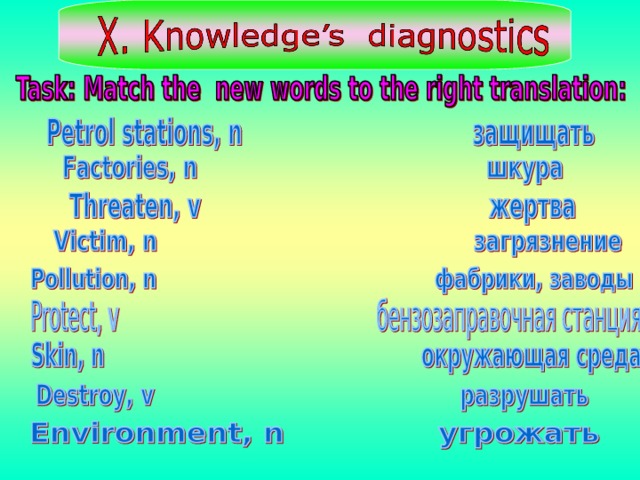
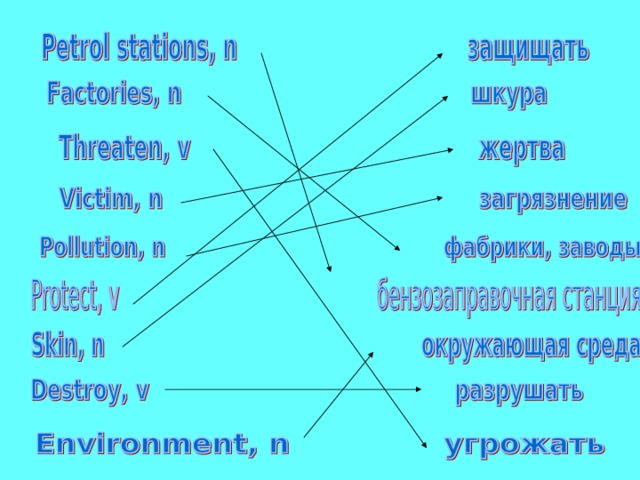

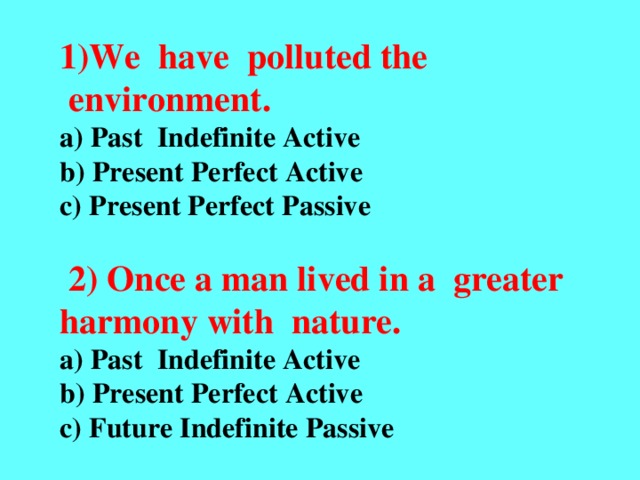
environment.
a) Past Indefinite Active
b) Present Perfect Active
c) Present Perfect Passive
2) Once a man lived in a greater
harmony with nature.
a) Past Indefinite Active
b) Present Perfect Active
c) Future Indefinite Passive
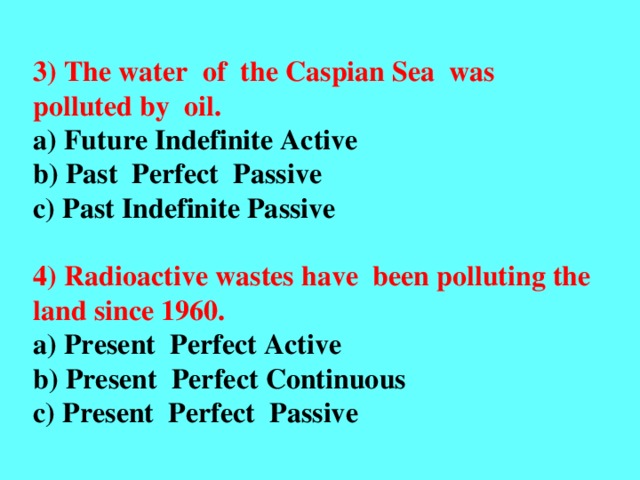
3) The water of the Caspian Sea was
polluted by oil.
a) Future Indefinite Active
b) Past Perfect Passive
c) Past Indefinite Passive
4) Radioactive wastes have been polluting the land since 1960.
a) Present Perfect Active
b) Present Perfect Continuous
c) Present Perfect Passive
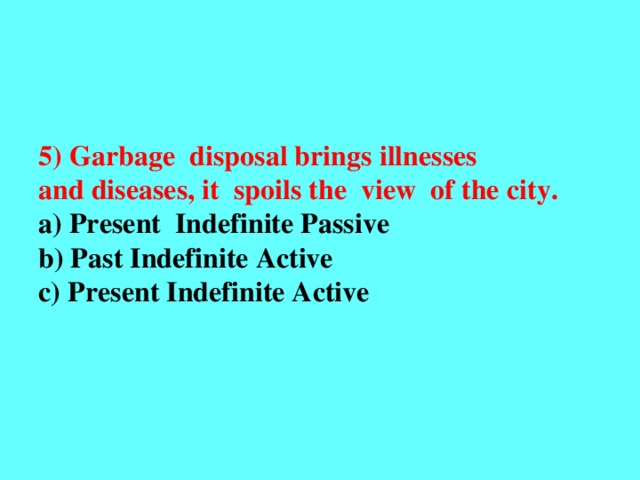
5) Garbage disposal brings illnesses
and diseases, it spoils the view of the city.
a) Present Indefinite Passive
b) Past Indefinite Active
c) Present Indefinite Active
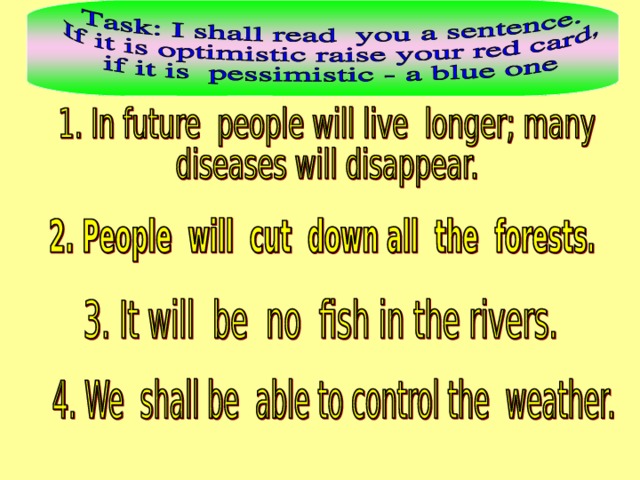
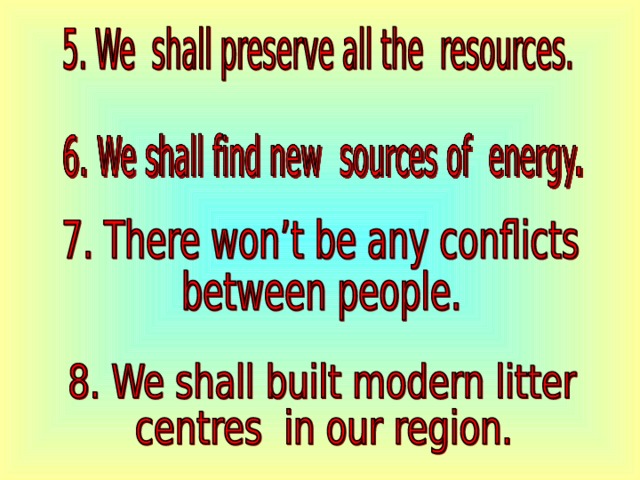
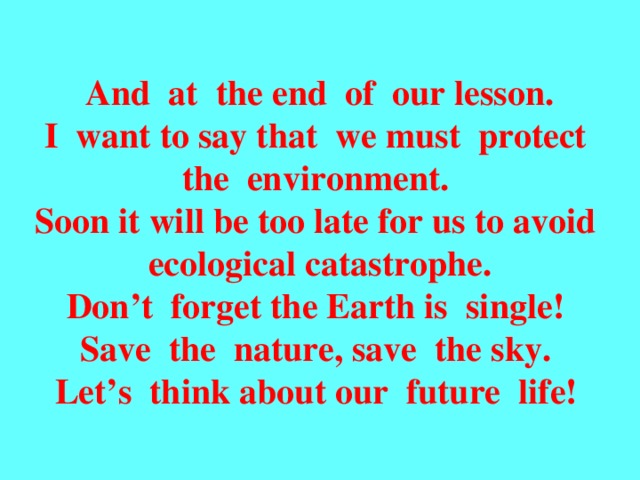
And at the end of our lesson.
I want to say that we must protect
the environment.
Soon it will be too late for us to avoid
ecological catastrophe.
Don’t forget the Earth is single!
Save the nature, save the sky.
Let’s think about our future life!

№
Name
1
«5»
2
3
«4»
4
«3»
5
6
7
8
9
10
11
12
